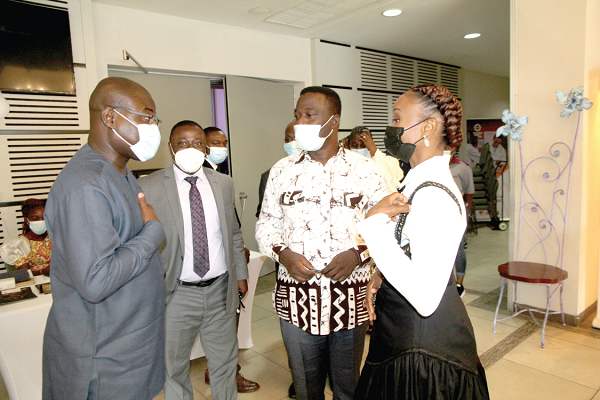
Informal sector to be streamlined to broaden market reach
The informal sector is to be streamlined to make it more attractive to broaden its market reach.
This is being done through digitisation, precision quality training and reformation of the country’s technical and vocational education and training (TVET) space, all of which have been identified as the key instruments needed to formalise the sector.
Advertisement
The Minister of Employment and Labour Relations, Mr Ignatius Baffour-Awuah, said in furtherance of that, the ministry was working closely with the Youth Employment Agency to establish an apprenticeship directorate to certify apprentices onto a common digital platform to ensure that their services were more visible to the public.
Dialogue
He was speaking at a multi-stakeholder dialogue on youth employability and precision quality (PQ) training organised by the Design and Technology Institute (DTI), in collaboration with the National Development Planning Commission (NDPC), in Accra yesterday.
It was on the theme: “Unlocking the skills and competencies of young people for quality jobs in Ghana and the globalised labour market.”
It was attended by stakeholders from various institutions, including the Ghana Standards Authority (GSA), the Commission for Technical and Vocational Education and Training (COTVET), the Association of Ghana Industries (AGI), academia, as well as the private sector.
It formed part of a three-year partnership between the Mastercard Foundation, an NGO, and the DTI to provide 40,000 direct and indirect work opportunities for young people in the country through TVET.
Mr Awuah said the ministry was also working with the NDPC to implement a strategic plan for Ghana’s workforce, adding that “the world of work is changing, and as a nation we have no choice but prepare and adapt to that change”.
Commendation
The Chief Executive Officer (CEO) of the DTI, Ms Constance Elizabeth Swaniker, commended the Mastercard Foundation for its role in the implementation of the PQ programme.
"We will continue to engage with all stakeholders in our collective effort to support the national agenda to address the skills gap challenge facing academia and industry and provide a basis for the creation of sustainable jobs for the youth through TVET programmes," she said.
Ms Swaniker said a national policy on PQ would ensure that students and apprentices were assessed by PQ experts for certification after completion of their course modules to provide the basis for hiring, including the payment of salaries and benefits, as well as promotions and career progression.
For his part, the Director-General of the NDPC, Dr Kodjo Mensah-Abrampa, said the limited number of skilled industrial personnel and the mismatch to industrial needs were constraints to most people in the sector.
“Our proposals for the medium-term will be to ensure improved skills development for industry by transforming the apprenticeship training model from a supply-driven approach to a market-demand model,” he said.



